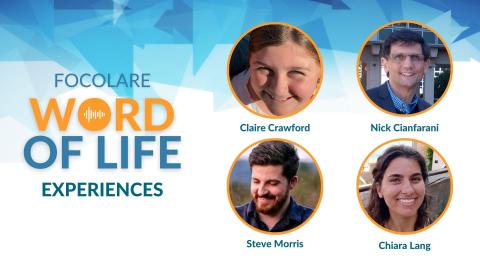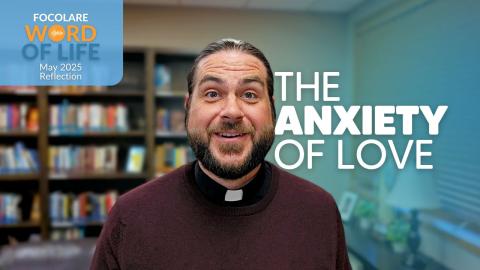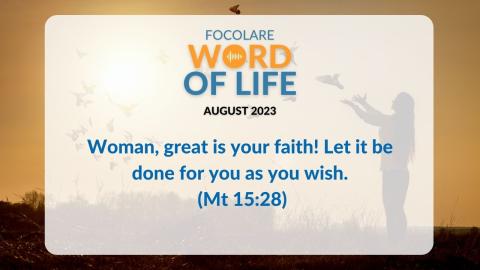“Rejoice with me, for I have found my sheep that was lost” (Luke 15:6)
In ancient times in the Middle East, shepherds used to count their sheep when they returned from pasture, ready to search for even one that might be missing. They would even venture out into the desert at night to find any that had strayed.
This parable is a story of loss and recovery that highlights the love of the shepherd. He notices that a sheep is missing, searches for it, finds it, and carries it back on his shoulders because it is weak and frightened, perhaps wounded, and unable to follow the shepherd on its own. He brings it home to safety and then, filled with joy, invites his neighbors to celebrate together.
“Rejoice with me, for I have found my sheep that was lost.”
The recurring themes in this story can be summarized in three actions: getting lost, being found, and celebrating.
Getting lost. The good news is that the Lord goes in search of those who are lost. We often lose ourselves in the various deserts around us, or in which we are forced to live, or in which we take refuge: the deserts of abandonment, marginalization, poverty, misunderstanding and disunity. The Shepherd seeks us even there, and even if we lose sight of him, he will always find us again.
Being found. Let’s try to imagine the scene of the shepherd’s frantic search in the desert. It’s an image that strikes us with its expressive power. We can understand the joy felt by both the shepherd and the sheep, and this encounter restores in the sheep the sense of being safe after escaping danger. “To be found” is truly an act of divine mercy.
Celebrating. The shepherd gathers his friends to celebrate because he wants to share his joy, as in the other two parables that follow this one, that of the lost coin and that of the merciful father. Jesus wants us to understand the importance of sharing joy with everyone, and he also wants to “immunize” us against the temptation of judging others. We are all “found.”
“Rejoice with me, for I have found my sheep that was lost.”
This Word of Life is an invitation to be grateful for the mercy that God has for each of us personally. The fact that we rejoice and celebrate together presents an image of unity, where there is no opposition between those who are “righteous” and those who are “sinners,” but rather we share in each other’s joy.
Chiara Lubich commented on this phrase: “It’s an invitation to understand the heart of God, to believe in his love. Inclined as we are to measure and calculate, at times we think that God’s love for us is like that, too. We think that God will tire of us and say, ‘That’s enough!’ But God’s logic is not like ours. (…) God is always waiting for us; indeed, we give him immense joy every time we return to him, even countless times.”
“Rejoice with me, for I have found my sheep that was lost.”
Sometimes we can be those shepherds, those guardians of one another who lovingly go in search of those who have strayed from us, from our friendship, from our community, in search of the marginalized, the lost, the little ones whom the trials of life have pushed to the margins of society.
“Some students attended classes only sporadically,” a teacher tells us. “During my free periods, I would go to the market near the school, hoping to find them there, because I had heard that’s where they worked to earn a little money. One day, I finally saw them, and they were surprised that I had come personally to look for them. They were struck to learn how important they were to the entire school community. They started coming to school regularly again, and it was truly a celebration for everyone.”
Prepared by Patrizia Mazzola and the Word of Life Team





